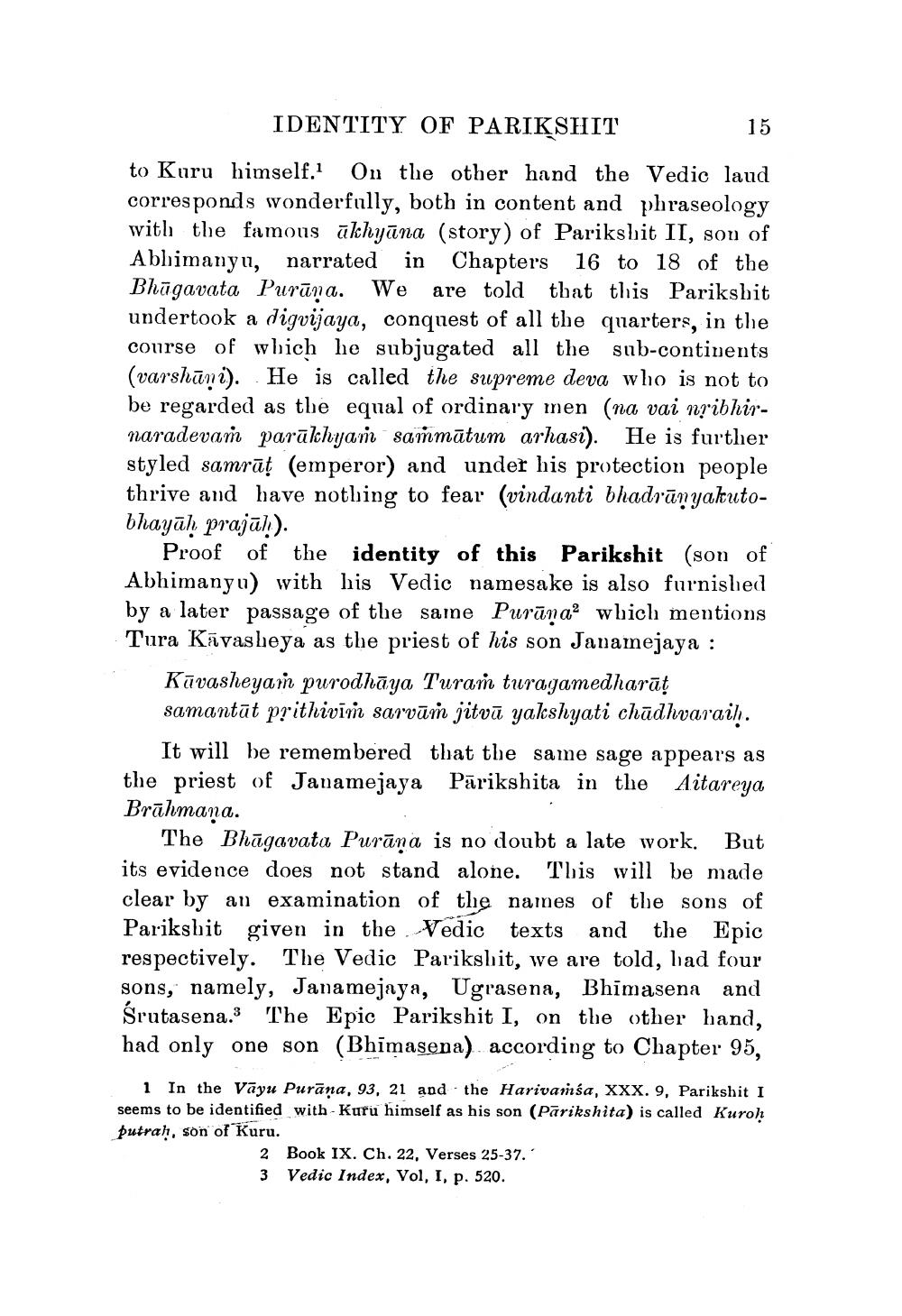________________
15
IDENTITY OF PARIKSHIT to Kuru himself. On the other hand the Vedic laud corresponds wonderfully, both in content and phraseology with the famous ākhyāna (story) of Pariksbit II, son of Abhimanyu, narrated in Chapters 16 to 18 of the Bhagavata Purūna. We are told that this Parikshit undertook a digvijaya, conquest of all the quarters, in the course of which he subjugated all the sub-continents (varshāni). He is called the supreme deva who is not to be regarded as the equal of ordinary men (na vai nạibhirnaradevam parūkhyam saimātum arhasi). He is further styled samrāț (emperor) and under his protection people thrive and have nothing to fear (vindanti bhadrūnyakutobhayāh prajāli).
Proof of the identity of this Parikshit (son of Abhimanyu) with his Vedic namesake is also furnished by a later passage of the same Purūnawhich mentions Tura Kāvasheya as the priest of his son Janamejaya :
Kūvasheyam purodhāya Turaṁ turagamedharāt samantāt prithivim sarvām jitvā yakshyati chādhvaraih.
It will be remembered that the same sage appears as the priest of Janamejaya Pārikshita in the Aitareya Brālumana.
The Bhāgavata Purāna is no doubt a late work. But its evidence does not stand alone. This will be made clear by an examination of the names of the sons of Pariksbit given in the Vedic texts and the Epic respectively. The Vedic Parikshit, we are told, had four sons, namely, Janamejaya, Ugrasena, Bhimasena and Śrutasena.3 The Epic Parikshit I, on the ot had only one son (Bhimasena) according to Chapter 95,
1 In the Vayu Purāna, 93, 21 and the Harivamśa, xxx. 9, Parikshit I seems to be identified with - Kuru himself as his son (Parikshita) is called Kuroh putraḥ, son of Kuru.
2 Book IX. Ch. 22, Verses 25-37.' 3 Vedic Index, Vol, I, p. 520.




